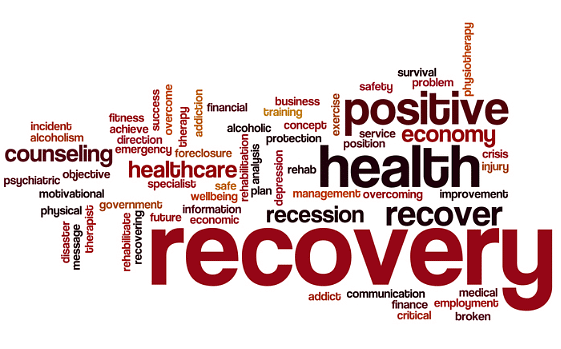UPSC Exam > UPSC Notes > Psychology for UPSC Optional (Notes) > Rehabilitation Strategies for Individuals Battling Substance Abuse
Rehabilitation Strategies for Individuals Battling Substance Abuse | Psychology for UPSC Optional (Notes) PDF Download
Introduction
Substance abuse is a pervasive issue affecting individuals from all walks of life. Whether it is alcoholism or drug addiction, the consequences of these harmful habits can be devastating. Recognizing the importance of addressing this problem, various rehabilitation programs have been developed to help individuals overcome their addiction and regain control of their lives. This article will explore the rehabilitation process for persons suffering from substance abuse, highlighting different techniques, therapies, and support systems that play a crucial role in their recovery.
Exploring the Effects of Drug Abuse
Drug usage and addiction can lead to significant changes in brain structure and function. To prevent the problems associated with drug use, the most effective approach is to take preventive measures and avoid drug consumption altogether. Even a single experiment with drugs can pave the way for a lifetime of dependency. The consequences of drug abuse are not limited to physical health; they can also have severe implications for one's finances, mental well-being, and familial relationships. Furthermore, quitting drug use can be challenging due to withdrawal symptoms and increased tolerance.

Spotting Signs of Drug Abuse
Drug abuse affects individuals from diverse backgrounds, regardless of whether they initially began using drugs recreationally or as prescribed medication. It is important to recognize the early signs of drug abuse. Physical symptoms such as poor coordination, sleep disturbances, changes in appetite and weight, and abnormal eye behaviors may indicate drug misuse. Behavioral symptoms, including shifts in attitude, personality, and engagement in illegal activities, are also red flags.
Techniques for Overcoming Dependence
Rehabilitation programs vary based on the severity and type of drug being abused. The first and most crucial step towards recovery is acknowledging the addiction issue. Various techniques and support systems are employed to assist individuals in overcoming their drug dependence.
- Psychotherapy: Counselors work closely with addicts on an individual basis to help them overcome their drug addiction. Through personalized sessions, individuals gain insights into the underlying causes of their addiction and develop strategies to cope with cravings and triggers.
- Mutual Aid Organizations: Participating in support groups such as Alcoholics Anonymous (AA) or Narcotics Anonymous (NA) provides individuals with a network of peers who understand their struggles. These groups serve as a source of inspiration and encouragement, as members share their experiences and support each other throughout the recovery journey.
Management Approaches for Drug Addiction
Treating drug addiction can be challenging, but there are various approaches that can aid in the recovery process. These approaches focus on addressing the underlying issues contributing to addiction and developing healthy coping mechanisms.
- Cognitive and Behavioral Therapy (CBT): CBT helps individuals identify and change negative thinking patterns associated with drug abuse. Through this therapy, positive thoughts and behaviors replace harmful ones, and patients learn effective strategies for managing stress and triggers.
- Motivational Enhancement Therapy: This treatment aims to reignite the patient's internal motivation to overcome addiction. By fostering a sense of personal agency and commitment to the treatment plan, individuals are empowered to make lasting changes.
- Contingency Management: This approach utilizes positive reinforcement to reward individuals for adhering to their treatment goals. By providing incentives for drug-free behavior, this method encourages the development of healthier habits.

Methods of the 12-Step Movement
The 12-Step Movement has been widely adopted in the treatment of substance abuse. Joining a support group that follows the principles of the 12-step program is instrumental in the recovery process. These groups provide a platform for individuals to share their experiences, receive support, and develop a relapse prevention plan.
- Utilizing Medications: Medication-assisted treatment (MAT) is often employed during the detoxification process. MAT involves using specialized medications under the supervision of medical professionals to alleviate withdrawal symptoms and cravings. These medications help individuals safely eliminate harmful substances from their bodies and manage the challenges associated with detoxification.
- Residential Treatment for Long-Term Recovery: For individuals requiring intensive care and support, residential treatment programs offer a structured environment for healing. These programs typically span six to twelve months and provide a multidisciplinary team, including psychiatrists, psychologists, nurses, and doctors, to cater to the individual's needs. The focus is on providing comprehensive care and support throughout the recovery journey.
- Community-Based Activities and Hospitalization Treatment: Community-based programs provide ongoing care and support for individuals recovering from substance abuse. Regular therapy sessions and consultations with mental health professionals are crucial components of these programs. In cases where progress is hindered, hospitalization treatment can offer more intensive and closely monitored care. The interdisciplinary team provides round-the-clock monitoring and employs therapeutic interventions to support the recovery process.
The Importance of Detoxification
Detoxification is the initial step in any rehabilitation process. It involves removing toxic substances from the body, and medication-assisted treatment is often used to facilitate this process. Detoxification is typically performed under the supervision of trained medical and mental health professionals who can manage withdrawal symptoms and ensure the individual's safety.
Conclusion
Overcoming addiction requires ongoing support and intervention. Rehabilitation programs, along with medical and psychiatric professionals, play a crucial role in helping individuals restore their normal functioning and reduce drug cravings. Psychotherapy, motivation enhancement, insight development, and medications are integral components of the rehabilitation process. By participating in comprehensive treatment programs, individuals struggling with substance abuse can develop the necessary tools to break free from addiction and lead healthier, fulfilling lives.
The document Rehabilitation Strategies for Individuals Battling Substance Abuse | Psychology for UPSC Optional (Notes) is a part of the UPSC Course Psychology for UPSC Optional (Notes).
All you need of UPSC at this link: UPSC
|
160 videos|215 docs
|
Related Searches















